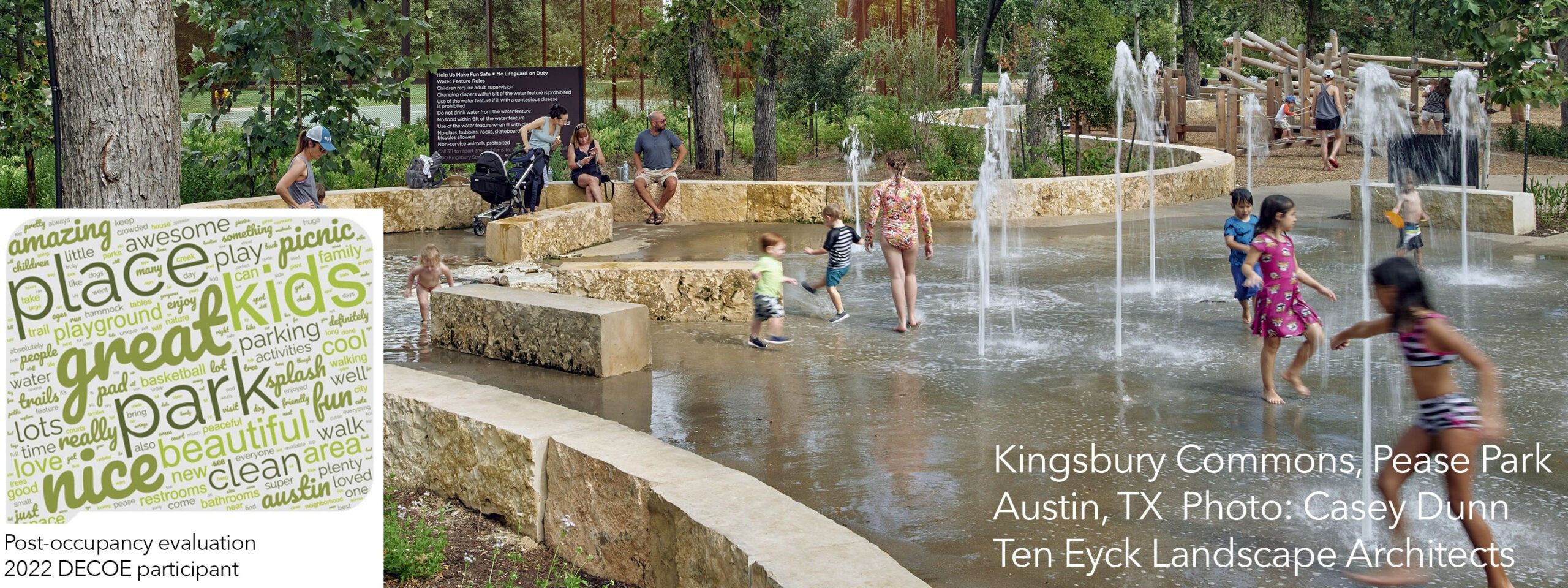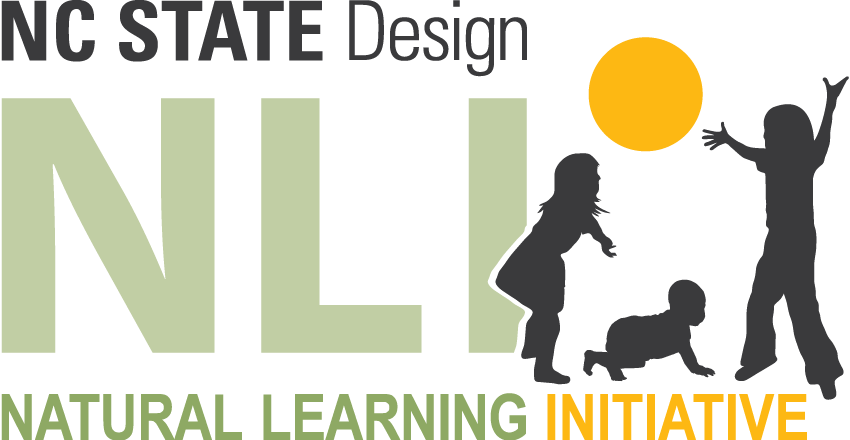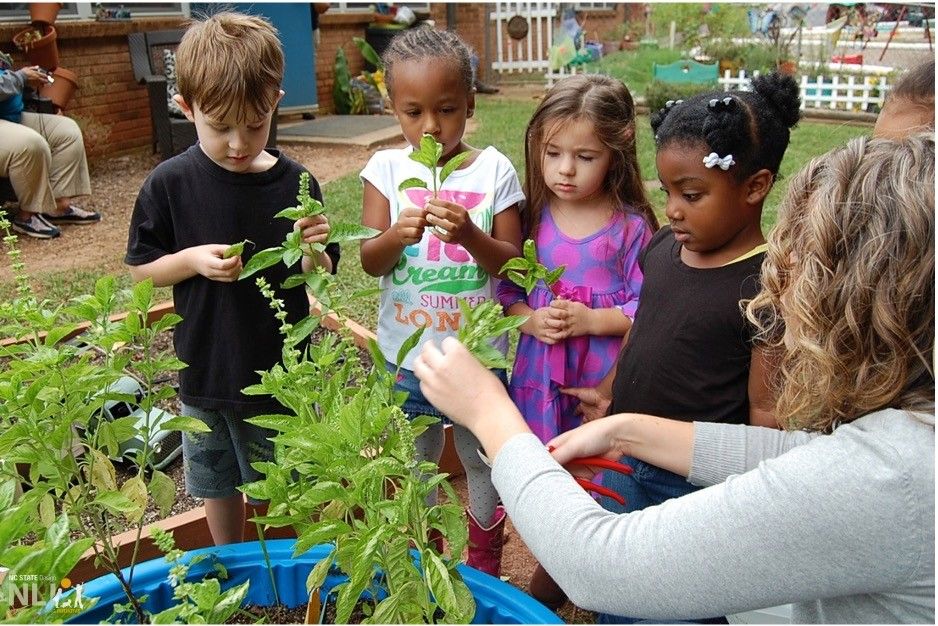Designing Early Childhood Outdoor Environments Certificate

Join NLI’s DECOE Certificate Course, September 11 – December 4. Learn about participatory design programming, post-occupancy evaluation (POE) and “environment-and-behavior (E&B) biophilic design principles for creating play & learning spaces for kids and families in regenerated, naturalized built environments. The course is tailored for landscape design professionals and allied professionals in education, parks and recreation, and public health, and students. How can physical design encourage equitable, inclusive, wellbeing in health-promoting outdoor urban spaces?
Designing Early Childhood Outdoor Environments is a distance education certificate course for landscape architects/design/design-build professionals, cooperative extension agents, and advanced landscape design students enrolled in academic institutions. Twenty-four hours of asynchronous, self-paced coursework is delivered during twelve weeks in eight modules, including a capstone project.
Licensed landscape architects earn 24 LA CES™ (Landscape Architecture Continuing Education System™) professional development hours. Content is delivered with related exercises and quizzes, periodic online forums, and interactive sessions (live discussions, chats, and video calls). Course grading is “Satisfactory/Unsatisfactory” (S/U).
Participants should have a qualification in landscape architecture, landscape design, or horticultural science and preferably some years of landscape design practice. Currently, enrolled students should have at least two years of coursework in landscape design.
To be successful in this course, participants need proficient drafting skills that may include digital skills (using AutoCAD, VectorWorks, photoshop, etc.) and/or hand drawing skills (using tracing paper, engineering scales, drafting table, T-square, tri-square, templates, colored crayons/markers, etc.), sufficient to deliver a credible capstone landscape design.
The course goal is to transfer landscape design thinking, principles, and expertise related to the design of outdoor play and learning environments of daily life where users include children from the first year of life through middle childhood including siblings, peers, caregivers, and other accompanying adults.
Content includes participatory design processes and tools that support active lifestyles, physical and mental health, social-emotional wellbeing, and healthy eating by immersing users in nature in childcare/development centers, schoolgrounds, multi-family residential neighborhoods, streets, parks, greenways, mixed-use development, children’s gardens, museums, nature centers, zoos, botanical gardens, and similar institutions.
Participants completing this course will be able to:
- Apply design methods to outdoor spaces to encourage children to explore, be active, practice motor development skills, engage in outdoor play and learning, and engage with nature.
- Identify strategies for creating high-quality outdoor environments to support play and early childhood experiential learning.
- Describe how design can positively influence physical activity and healthy eating in young children.
- Recognize landscape design as a human/environment health intervention and system-change strategy.
Knowledge of the following areas will be acquired:
- Environment and behavior concepts applied to site design.
- Biophilic design infusing the spaces of everyday life with nature.
- Site level design thinking for childcare/ development centers.
- Site-level design thinking for elementary schoolgrounds/yards (including pre-K spaces).
- Site-level design thinking for multi-family residential neighborhoods, including community commons, streets, parks, greenways, and mixed-use development.
- Site-level design thinking for nonformal education institutions, including museums, public gardens, nature centers, nature preserves, arboreta, and zoos. (Project site management.)
- Site-level design thinking for nonformal education institutions, including museums, public gardens, nature centers, nature preserves, arboreta, and zoos.
- Landscape management strategies and methods, including risk management.
Content Includes:
- Childhood developmental stages and age-appropriate landscape design responses.
- Evidence-based best practice indicators for designing outdoor spaces in child development/childcare centers and similar facilities.
- Community-based, interactive landscape design processes.
- Age-appropriate outdoor risk management protocols.
- Case examples of nature play and learning place-making.
- Regulatory implications for nature-based design of outdoor play and learning environments.
- Access to multiple resources created by NLI during the last two decades.
- Other relevant landscape design topics serving children and their families.
Participants will:
- Acquire design methods and skills for creating landscapes that encourage young children’s playfulness, imagination, creativity, and social-emotional development, while engaged in outdoor play and learning that supports an enduring love of nature.
- Understand how landscape design can increase physical activity and healthy eating in early childhood.
- Discover how to create high-quality environments that support outdoor experiential learning while acknowledging risk and applying risk management strategies and protocols to ensure hazard-free conditions.
- Recognize incremental development as a viable, appropriate, design-driven implementation process.
- Promote landscape design as a human and environmental health intervention.
Stay tuned for the next session!
Subscribe to the NLI Newsletter to learn about upcoming courses.
REGISTRATION FEE: $650
Price includes NC State University administrative and e-learning technology charges, NLI course management, and instructional time.
*Discounts are available for students and groups. Contact information for all discount codes is available when you click “Register Here”.
- Student: $300 (with proof of enrollment in full-time study)
- Group rates available
Design Certificate Prerequisite
Participants must be capable of producing scaled drawings, plans, and layouts either computer-generated or by using proficient hand-drawing skills. During the registration process, proof of course eligibility may be requested. If determined to be ineligible, registration will be canceled and refunded or used to enroll in the Early Childhood Outdoor Learning Environments Certificate Course.
*This course is LA CES approved for 24 hours of credit.
It tied to things I’ve been thinking about but never had the time to research on my own.
I hope that more designers will take the course.
Loved this course and really loved the incredible content media that was provided.
The capstone project helped drive home the course principles.
Excellent videos. The online layout was easy to access!
Lead Instructors
Robin Moore, Dipl.Arch, MCP, Hon ASLA
Professor of Landscape Architecture and Environmental Planning
Co-founder NLI
Nilda Cosco, PhD
Research Associate Professor of Landscape Architecture and Environmental Planning
Co-founder NLI
Natural Learning Initiative
College of Design, NC State University
www.naturalearning.org
©2022. All rights reserved


